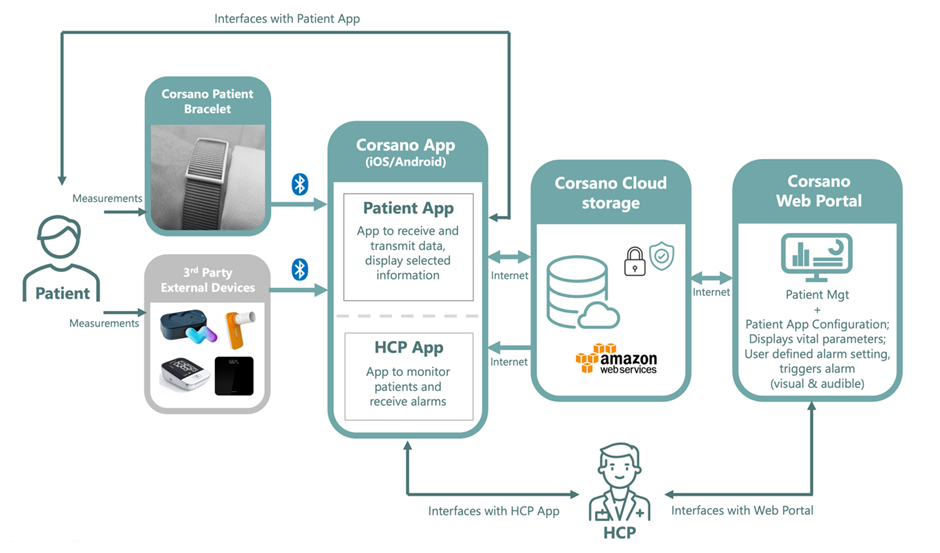Embark on a transformative journey to conquer depression for good by implementing empowering strategies. It’s crucial to recognize the seriousness of this mental health condition and take proactive steps towards recovery. This guide examines into effective techniques and positive habits that can aid you in overcoming depression once and for all. Say goodbye to the darkness and embrace a brighter future with these life-changing approaches.
Key Takeaways:
- Seek Professional Help: Consulting a mental health professional such as a therapist or psychiatrist can provide personalized treatment plans and support tailored to your specific needs.
- Practice Self-Care: Engage in activities that promote mental well-being such as exercise, healthy eating, mindfulness, and adequate sleep. Self-care plays a vital role in managing and overcoming depression.
- Build a Support System: Surround yourself with understanding and supportive individuals who can offer encouragement, empathy, and a listening ear during difficult times. Developing a strong support system can significantly aid in your journey to recovery.
Recognizing the Factors Contributing to Depression
Obviously, overcoming depression starts with understanding the factors that contribute to this mental health condition. By identifying these elements, individuals can take the necessary steps to address them effectively.
Identifying Triggers and Stressors
Depression can be triggered by various factors such as traumatic life events, chronic stress, genetics, and imbalances in brain chemistry. It is crucial to pinpoint these triggers and stressors to develop personalized strategies for managing and preventing depressive episodes.
Recognizing the warning signs and patterns of behavior that precede depressive episodes is crucial. By keeping a journal or seeking the help of a mental health professional, individuals can gain insights into their triggers and stressors and learn how to navigate challenging situations effectively.

The Role of Lifestyle and Health in Depression
Recognizing the impact of lifestyle and health choices on mental well-being is key to addressing depression. Factors such as diet, exercise, sleep patterns, and substance abuse can significantly influence one’s vulnerability to depression.
A balanced diet rich in crucial nutrients, regular physical activity, adequate sleep, and abstaining from harmful substances can all contribute to a positive mental state. Incorporating healthy habits into daily routines can help reduce the risk of depression and improve overall well-being.
A comprehensive approach that addresses triggers, stressors, lifestyle choices, and mental health is crucial in overcoming depression. If you or someone you know is struggling with depression, seeking professional help is crucial. Contact SAMHSA’s National Helpline for confidential support and resources.
How-To: Strategies for Building Resilience
One of the most effective ways to overcome depression for good is by building resilience. Resilience is the ability to bounce back from difficult experiences and adapt positively to adversity. By incorporating strategies to enhance your resilience, you can better navigate through challenges and improve your overall well-being.
Developing a Robust Support System
Developing a robust support system is crucial in overcoming depression and building resilience. Surround yourself with positive and understanding individuals who can provide emotional support during tough times. This can include friends, family members, therapists, or support groups where you can freely express your feelings and receive guidance. By having a strong support network, you can feel less alone in your struggles and gain valuable insights on how to overcome obstacles.
Additionally, cultivating healthy relationships based on trust and mutual respect can contribute to your mental and emotional well-being. Make an effort to connect with others, engage in meaningful conversations, and participate in activities that foster a sense of belonging and connection. Building healthy relationships can help you feel supported, valued, and cared for, which are imperative for overcoming depression.
Techniques for Improving Mental and Emotional Strength
Strength
One technique for improving mental and emotional strength is practicing mindfulness and self-compassion. Mindfulness involves focusing on the present moment without judgment, which can help reduce stress and increase self-awareness. Self-compassion involves treating yourself with kindness and understanding, especially when facing difficult situations or setbacks. By incorporating these practices into your daily routine, you can enhance your resilience and develop a more positive outlook on life.
Plus
Moreover, engaging in mental health therapies such as cognitive-behavioral therapy (CBT) or dialectical behavior therapy (DBT) can help you develop coping strategies, challenge negative thought patterns, and improve your emotional regulation skills. These evidence-based therapies can provide you with the necessary tools and techniques to better manage your depression symptoms and build resilience over time.

Practical Tips for Managing Symptoms
All individuals struggling with depression can benefit from practical strategies to help manage their symptoms and improve their overall well-being. It is crucial to remember that overcoming depression is a journey, and consistency in implementing these strategies is key to long-term success.
Perceiving Depression – treatment and management as a holistic approach involving lifestyle changes and coping mechanisms can significantly enhance the effectiveness of your treatment plan.
Daily Habits for Mental Wellness
Tips for maintaining mental wellness on a daily basis include incorporating regular exercise, sufficient sleep, and a balanced diet into your routine. Engaging in activities that bring you joy and relaxation, such as spending time outdoors, practicing mindfulness, or pursuing a hobby, can also contribute to your overall mental health.
Establishing a consistent daily schedule, setting realistic goals, and prioritizing self-care are vital components of maintaining mental wellness and managing depression symptoms effectively.
Coping Skills for Challenging Times
One effective way to navigate through challenging times is to develop healthy coping skills that can help you cope with stress, anxiety, and negative emotions. Techniques such as deep breathing exercises, journaling, seeking support from loved ones, or practicing cognitive-behavioral therapy can empower you to better handle difficult situations.
Skills such as cultivating self-compassion, practicing gratitude, and fostering a positive mindset can play a crucial role in strengthening your resilience and emotional well-being, creating a solid foundation for overcoming depression in the long run.
Advanced Approaches to Sustain Recovery
Now, let’s research into advanced approaches that can help you sustain your recovery from depression. These strategies go beyond the basics and offer additional tools to support your mental health journey.
-
Incorporating Mindfulness and Meditation
Practice Description Mindful Breathing Focus on your breath to bring awareness to the present moment. Body Scan Scan your body from head to toe, noticing any tension or discomfort. -
Pursuing Therapy and Professional Guidance
Therapy Type Description Cognitive Behavioral Therapy (CBT) Identify and challenge negative thought patterns to change behaviors. Support Groups Connect with individuals who understand your struggles and provide empathy.
Incorporating Mindfulness and Meditation
Sustain your recovery by incorporating mindfulness and meditation practices into your daily routine. These techniques can help you stay grounded, reduce stress, and improve your overall well-being. By cultivating present-moment awareness through mindfulness exercises and calming your mind through meditation, you can build resilience against depressive symptoms.
Pursuing Therapy and Professional Guidance
Approaches such as Cognitive Behavioral Therapy (CBT) and joining support groups can provide you with the necessary tools and community support to navigate through challenging times. Seeking professional guidance from therapists and counselors can offer personalized strategies to address your unique mental health needs and empower you on your journey towards recovery.
Meditation: It is vital to note that while these advanced approaches can be highly beneficial in sustaining your recovery, it is crucial to consult with mental health professionals to determine the most suitable strategies for your individual needs. Recall, your mental health journey is unique, and seeking professional guidance can make a significant difference in your long-term well-being.
Summing up
Upon reflecting on the empowering approaches on how to overcome depression for good, it is clear that a combination of therapy, medication, self-care practices, and a strong support system is crucial in managing and ultimately defeating depression. By seeking professional help, engaging in positive coping mechanisms, making healthy lifestyle changes, and reaching out to loved ones for assistance, individuals can navigate their way towards healing and recovery. Each person’s journey to overcoming depression may vary, but with determination, resilience, and a proactive approach, it is possible to conquer this mental health challenge and move towards a brighter future.
FAQ
Q: What is depression and why is it important to take it seriously?
A: Depression is a serious mental health condition that can affect a person’s thoughts, feelings, and behaviors. It is important to take depression seriously because it can significantly impact a person’s quality of life and overall well-being. Ignoring or neglecting depression can lead to more severe symptoms and complications.
Q: What are some empowering approaches to overcome depression for good?
A: There are several empowering approaches to overcome depression for good, including therapy (such as cognitive-behavioral therapy), medication (prescribed by a healthcare professional), regular exercise, practicing mindfulness and relaxation techniques, maintaining a healthy diet, getting an adequate amount of sleep, setting realistic goals, and building a strong support system.
Q: How can one maintain mental wellness after overcoming depression?
A: To maintain mental wellness after overcoming depression, it is crucial to continue practicing self-care strategies, such as engaging in regular physical activity, participating in activities that bring joy and fulfillment, staying connected with supportive friends and family members, attending therapy sessions if needed, monitoring for signs of relapse, and seeking help promptly if any symptoms of depression re-emerge.










